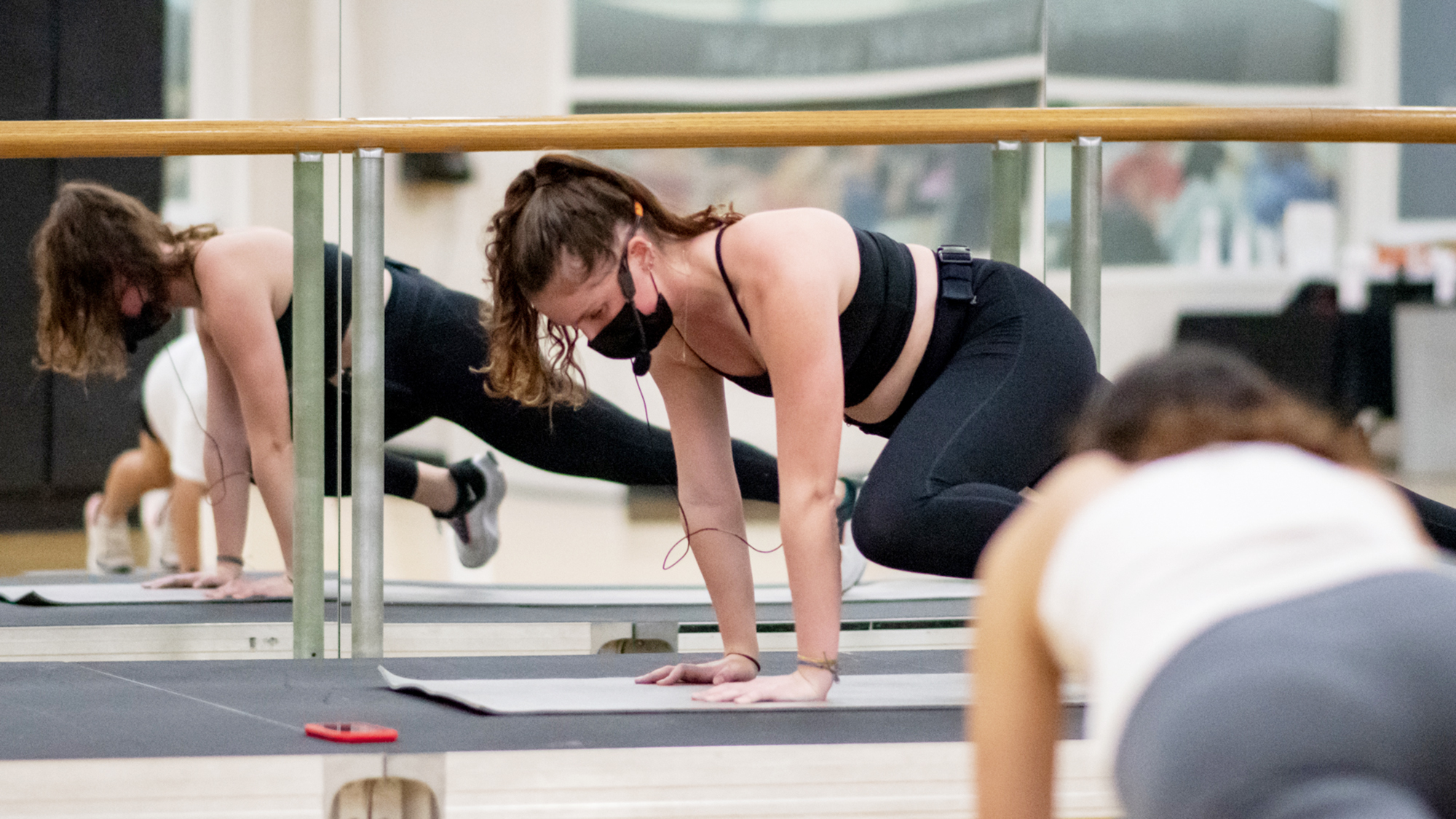Views expressed in opinion columns are the author’s own.
University of Maryland students are getting robbed. I don’t mean financially through ridiculous tuition costs, textbook prices or exorbitant housing prices that don’t even always have air conditioning. In addition to the many highly publicized problems this university has failed to address, it has many smaller, less publicized issues festering as well. This university is robbing its women, non-binary and trans students of their right to comfortable physical activity, which is crucial to maintaining both a healthier mental and physical well-being in a post-COVID-19 isolation era.
It’s no secret co-ed gyms can be male-dominated, with the fitness industry following suit from top to bottom. A BarBend survey on women in the gym found 87.2 percent of respondents have reported feeling unsafe at the gym, and 75 percent reported being heckled or catcalled at least once per week at the gym. More than half of the respondents either changed their training schedules or changed what they wore to mitigate possible harassment.
This university needs to prioritize its students’ health, particularly marginalized ones, by implementing a consistent and inclusive lifting program for those of traditionally underrepresented identities in the weight room.
Before the pandemic, then-seniors Sara Kohorst and Rachel Edsall ran a program called “Uplift” on Saturday mornings for women and students of other underrepresented identities to get a chance to lift weights with personal trainers in close proximity.
And yet, the year is 2022, and there are no whispers of the promising Uplift program that ended as a casualty of the pandemic and seniors graduating to the point that its requested page can no longer be found.
Since Uplift ran on volunteering and reserving the public health school for two-hour windows, a fundamental lack of structural support from the university is to blame for its disappearance.
This university owes its students — and its overbooked counseling center — the benefits that come with structuring a program similar to Uplift for students.
First, a new program similar to Uplift cannot be volunteer-based like the old one. Instead, Eppley higher-ups and the kinesiology department should offer an accredited class or stipend to qualified upper-level students to be the trainers.
With the prospective trainers being the same demographic as the participants, potential gym-goers will get personal training from knowledgeable and relatable trainers. All of these potential student trainers would be trained and supervised by certified trainers, ensuring quality workouts for attendees.
It is no secret this campus already runs on student workers. From resident and community assistants in dorms to the teaching assistants grading your papers in class, this university has a very capable student workforce of about 4,300. Clearly, we can continue to expand on this workforce and utilize the university’s best resource: its bright students. As evidenced by the numerous kinesiology courses offered by the university, we evidently produce some of the top minds and bodies in physical training. It would be a waste to not use them and their knowledge to further both physical fitness and justice before these students graduate.
Furthermore, the structured nature of a potential class would allow it to be offered multiple times a week. More flexibility could lead to higher attendance at these reinvigorated Uplift sessions, which could correspond with a higher proportion of underrepresented demographics growing more confident when going to the dreaded, testosterone-filled weight room.
At a school that already has rampant problems with the erasure of sexual assault from the administration, the Eppley Recreation Center and kinesiology department have the ability to make a lasting difference in the health of its students. A program bringing more women and non-binary people to the weight room could like help increase the self-esteem and physical fitness of some of its most vulnerable students.
This university needs to revive the Uplift program permanently with a structured student-worker system to deliver on its vision to become a “university that fully embraces diversity, equity and inclusion as morally right and educationally sound, and that centers the wellbeing of individuals and communities.”
Rohin Mishra is a sophomore government and economics major. He can be reached at rohinpmishra@gmail.com.



